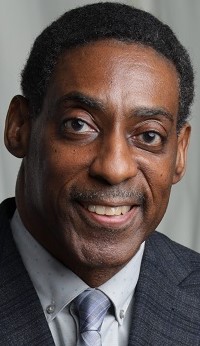
Separating fact from fiction

Finding a fact-based reason to distrust the government as an institution is not difficult. When referring to conspiracies, the Tuskegee Experiment, which started in 1932 in rural Alabama, was a secret plan by the U.S. government to medically harm its own people.
The Tuskegee syphilis study is considered the most egregious abuse of authority by medical researchers, and it was all based on a lie.
As part of its study of the long-term effects of syphilis, the United States Public Health Service denied treatment to 399 African American men who suffered from the effects of the disease. The study aimed to observe the natural history of untreated syphilis in Black populations.
But the study’s participants were unaware of this and were simply told they were receiving treatments for “bad blood”—a generic term often used to describe a variety of ailments.
They received no treatment at all—even with penicillin being discovered as a safe and reliable cure. The USPHS chose to thwart all efforts the men made to receive treatment from other sources. The experiment didn’t end until 1972 when a whistleblower leaked information about the study to The New York Times.
It led to mass public outrage, which resulted in the NAACP filing a class action lawsuit against the USPHS. Over the years, Tuskegee has served as the barometer for African Americans’ distrust of government institutions. When we separate fact from fiction, the mistrust over Tuskegee was justified while based on facts rather than politically motivated theories.
Conspiracy theories have always been a part of the American fabric. It is the deep-seated belief that the federal government is keeping a secret of great importance from the public.
Some people still question the findings of the Warren Commission, which concluded that Lee Harvey Oswald acted alone in the assassination of John F. Kennedy. People still believe alternate theories surrounding the assassination. As a result, a 2003 ABC News poll found that 70 percent of Americans believe Kennedy’s death resulted from a broader conspiracy.
With the current polarized politics of our nation as a backdrop, today’s mistrust of American institutions is partly by design. Conspiracy theories and “alternative facts” which perpetuate the erosion of trust in our governmental, economic, religious, educational, and judicial institutions has been in the making for decades.
The large number of people who are easily drawn and susceptible to any type of conspiracy theory are prime targets for manipulation by those with political agendas. With the amount of accessible information at our fingertips, there should be no reason why any objective person is left confused between fact and fiction.
Yet, more than two-thirds of Republicans seeking office this November have cast doubt on the results of the 2020 election. The denial that there is no evidence to support these views is no longer a surprise since it represents the new normal for the Republican Party. It is surprising what we are learning concerning the attitudes and sympathizers within the FBI.
A “sizable percentage” of FBI employees felt sympathy toward the Jan. 6 insurrectionists and considered the riot at the U.S. Capitol “no different than the BLM protests,” according to a warning email sent to a top FBI official. The writer of the email continued, “I literally had to explain to an agent from a ‘blue state’ office the difference between opportunists burning and looting during protests that stemmed legitimate grievance to police brutality vs. an insurgent mob whose purpose was to prevent the execution of democratic processes at the behest of a sitting president,” the email states. “One is a smattering of criminals, the other is an organized group of domestic terrorists.”
The Jan. 6 Congressional hearing is beginning to reveal how the Secret Service was fully aware of the threat of violence before it happened but chose to downplay the danger, including the potential harm to the vice president. It shows that being a police officer, FBI agent, or even a member of the Secret Service does not automatically shield a person from the influence of conspirators such as Alex Jones.
These are the type of corrupt law enforcement agents who gives us legitimate and justified reasons for not trusting our government. The bad apples have always been there. They will always be mixed in with those who maintain ethics and integrity, those who are willing to be the whistleblower when needed. But this is different. The bad apples, in this case, include a former president surrounded by Secret Service agents protecting his life and his corruption.
David W. Marshall is the founder of the faith-based organization, TRB: The Reconciled Body, and author of the book God Bless Our Divided America. He can be reached at www.davidwmarshallauthor.com.







